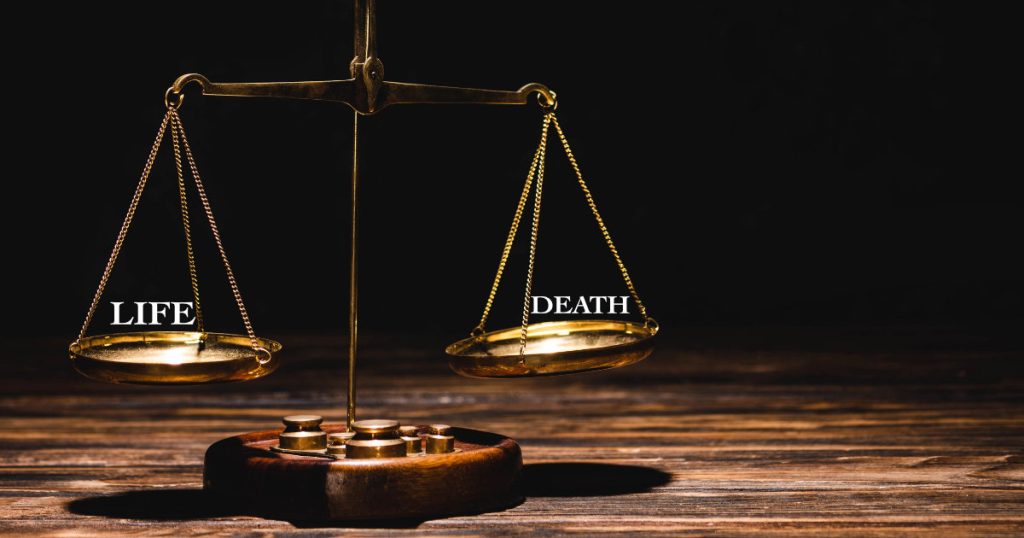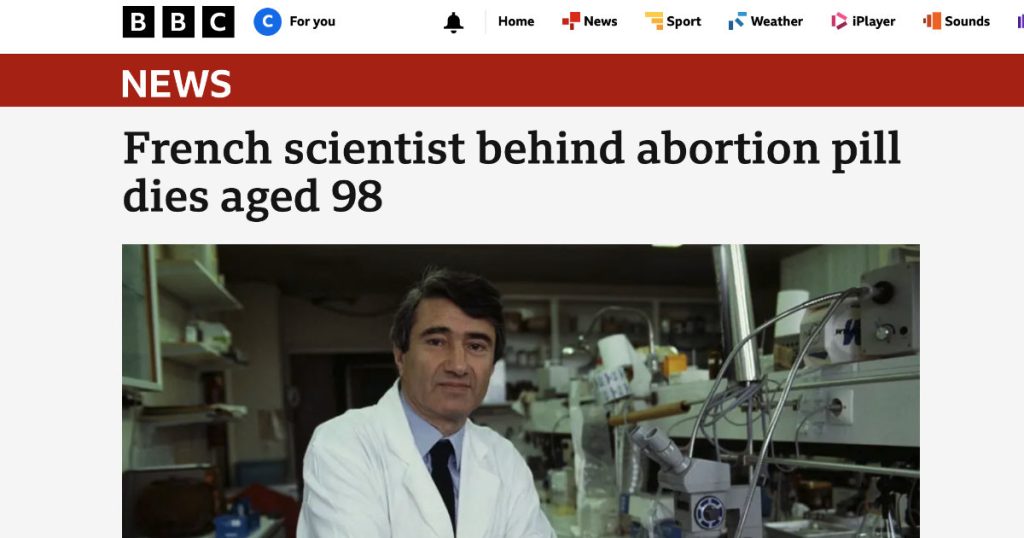
What God has made, let no law destroy.
I had a conversation recently with someone who was somewhere between ambivalence and being pro-abortion. Really, if you are ambivalent you are pro-abortion. It’s a binary issue. The thrust of their position was that a foetus is not legally a person under the law and therefore whatever is done to it is fine. They were referencing Canadian law; I find the UK law here a bit murky. UK defines the unborn as human and living but also says the unborn living human has no legal personality. The point I was making was twofold. Firstly, a living human being is also a person. Secondly, just because something is the law does not mean it is right, just or true. My interlocutor was operating under the idea that whatever the State hands down as law is also the moral compass by which we ought to live, and if babies die it doesn’t matter. I think they and anyone who does this sort of arguing will know that abortion is wrong and if they can hide behind the state’s decree on it, then they will run there sometimes appealing to democracy or “expert” opinion. I have found this opinion in the Church across a variety of denominations, sadly.

This brings up the question about how we make laws, who we make them for and what is the morality on which life and death legalities hinge. It really is the best topic on which to base any discussion about politics or governance. Because it is binary, because it is personal, because the facts are clear, because there is so much data, because it produces the clearest contrast between the haves and have nots, and because at the core it shows whether a society remembers and cares who God is, or whether we want to make the world in our own image because we think our ways serve us better.
The UK Parliament has some MPs desperate to make abortion legal for any reason at any stage. We have seen the commentary and poor framing for weeks leading up to the debate and cross-party support that focuses on current abortion law being “archaic” and harmful to women. This, because someone may face police investigation into their dead baby. Believe it or not, abortion is currently illegal after 24 weeks in many circumstances.
So where do we base our morality when it comes to making laws? If we are depending on democracy to define right and wrong anyone can see that just shows us what is popular, or easy. Are we relying on individual people in the corridors of power? How do we know they are right, and have our best interests in mind? How do we decide what our best interests are? This is a difficult thing to do when we’re talking about a nation of millions of adults with ideas and passions and goals.
I would suggest it’s a great deal easier to work out what is best for a nation’s children, most especially the unborn ones. The fact that Power has turned on them again as some kind of scapegoat for the frustrations and difficulties presented by being human is to my mind as dark and Godless as any society can be. Supporters of the Bill both in and outside Parliament never talk about the babies, the ones who will die during and as the sole, explicit intention of the process. They only talk about the women and their perceived right to kill their children, like this will solve all women’s problems. Where have we seen this thinking before, where we pit one group against another with the State orchestrating the violence, to solve problems?

Who would wish to see this enshrined in law as something sacred? The French have done similarly, President Macron heaped praise on the recently deceased Etienne-Emile Baulieu, the abortion pill creator. He said, amongst other things that he had changed the world like no other, though his courageous battle for love of freedom and science. No mention of the 7.5 million dead babies at the hands of his invention from the abortion pill in the US alone, or the lucrative rewards offered by Big Pharma. This about a man who in his early life fought the Nazi’s through the French Resistance, you would think he would have known better. There is much to be said about this, and maybe next time we will. For now, the battle remains here, in the home of modern democracy and with the valiant efforts of those who are defending life. When we finally recognise that we cannot just disregard the deeper and higher laws that we built our good laws upon, perhaps we can get to a place where we can once again write laws that celebrate and benefit all of us.
Daniel
March for Life UK
Content Creator





